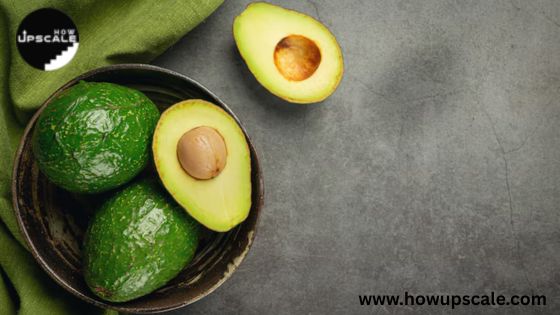Avocado Benefits: Nutrition Facts and Health Benefits and more

Avocados are a delicious and nutritious fruit that has been gaining popularity worldwide. Known for their creamy texture and rich flavor, they are often referred to as a superfood. Whether you’re adding them to salads, sandwiches, or smoothies, Avocado Benefits are numerous and impactful for your health.
We will explore the nutrition facts and health benefits of avocados, along with some fun ways to incorporate them into your diet.
What Are Avocados?
Avocados are a unique fruit, often classified as a berry due to their creamy texture and nutrient profile. Unlike most fruits, they are rich in healthy fats, primarily monounsaturated fats, which are beneficial for heart health. In addition to being a great source of fats, avocados are packed with essential vitamins, minerals, and other nutrients that contribute to various health benefits.
Avocado Benefits for Overall Health
1. Avocado Benefits for Heart Health
One of the most notable avocado benefits is its positive effect on heart health. Avocados are rich in monounsaturated fats, particularly oleic acid, which helps reduce bad cholesterol (LDL) levels in the body. This can lower the risk of heart disease and improve overall cardiovascular health. Moreover, avocados contain potassium, a mineral that helps regulate blood pressure and support healthy heart function.
2. Avocado Protein and Muscle Health
When people think of avocados, protein might not be the first thing that comes to mind. However, avocados are a good source of avocado protein, with approximately 3 grams of protein per half fruit. Protein is essential for building and repairing tissues, making it important for muscle health and recovery. By including more avocados in your diet, you can boost your protein intake while enjoying the numerous other health benefits of this fruit.
3. Rich in Fiber
Another significant benefit of avocados is their fiber content. A single avocado contains around 10 grams of fiber, which is essential for maintaining a healthy digestive system. Fiber helps regulate bowel movements, prevents constipation, and supports overall gut health. Additionally, fiber can help manage blood sugar levels and keep you feeling full longer, which is great for weight management.
4. Avocado Calories and Weight Management
When considering avocado calories, it’s important to note that while avocados are calorie-dense, they are still a healthy food choice. A single medium-sized avocado contains approximately 250-300 calories. However, the healthy fats and fiber in avocados help keep you feeling full and satisfied, which can reduce the likelihood of overeating. Incorporating avocados into your diet in moderation can help with weight management by promoting satiety without compromising nutritional value.
5. Avocado Benefits for Eye Health
Avocados are packed with antioxidants like lutein and zeaxanthin, which play a crucial role in protecting the eyes from damage caused by harmful light. These antioxidants can help reduce the risk of age-related macular degeneration (AMD), a common cause of vision loss in older adults. By consuming avocados regularly, you can support your eye health and protect your vision.
Avocado Nutrition Breakdown
To fully understand the avocado benefits, let’s take a look at the impressive avocado nutrition facts:
- Calories: 250-300 per medium avocado
- Protein: 3 grams per half avocado
- Fat: 22 grams per half avocado (mostly monounsaturated fat)
- Carbohydrates: 12 grams per half avocado
- Fiber: 10 grams per half avocado
- Potassium: 485 mg per half avocado
- Vitamin K: 26% of the daily recommended intake
- Vitamin E: 10% of the daily recommended intake
- Vitamin C: 17% of the daily recommended intake
- Folate: 20% of the daily recommended intake
As you can see, avocado nutrition is rich in a variety of nutrients that provide essential health benefits.
Avocado Benefits to Skin
Avocados are not only beneficial when consumed, but they also offer avocado benefits to skin. The vitamins, minerals, and healthy fats found in avocados can help promote healthy, glowing skin. Here are some key ways avocados support skin health:
1. Hydration and Moisture
The healthy fats in avocados help keep the skin moisturized and hydrated. This makes them particularly beneficial for people with dry or flaky skin. You can use avocado oil or mashed avocado as a natural moisturizer to hydrate your skin from the inside out.
2. Reducing Wrinkles and Fine Lines
The avocado benefits to skin also include its ability to reduce the appearance of wrinkles and fine lines. Avocados are rich in vitamin E, a powerful antioxidant that helps combat free radicals that contribute to premature aging. Regular use of avocado oil or avocado-based skincare products can help keep your skin youthful and radiant.
3. Healing and Repairing Skin
Avocados contain compounds that promote skin healing. For example, the vitamin C in avocados helps with collagen production, which is essential for maintaining skin elasticity. If you’re dealing with sunburns or other skin irritations, applying mashed avocado directly to the affected area may help soothe and repair your skin.
4. Acne Control
The avocado benefits to skin extend to acne control as well. Avocados contain both anti-inflammatory and antibacterial properties that can help reduce acne outbreaks. Their moisturizing properties also prevent skin from becoming too dry, which can sometimes trigger acne.
5. UV Protection
While avocados should not replace sunscreen, the antioxidants in this fruit can provide additional protection against the sun’s harmful rays. The combination of vitamin E and lutein found in avocados helps reduce skin damage from UV exposure, making it a great supplement to your sun protection routine.
Avocado Protein and Muscle Health
As mentioned earlier, avocado protein is an often-overlooked benefit of this fruit. Although not a complete protein like animal-based sources, avocados still provide a decent amount of protein that can contribute to muscle repair and growth. By incorporating avocados into your post-workout meal, you can help fuel muscle recovery while benefiting from the healthy fats and fiber avocados provide.
Avocados and Their Impact on Cholesterol Levels
In addition to reducing bad cholesterol, avocados also help increase good cholesterol (HDL). This is crucial for maintaining a healthy balance of cholesterol in your body. Including avocados in your diet can improve your lipid profile and reduce the risk of developing heart disease in the long run.
How to Incorporate Avocados into Your Diet
There are countless ways to enjoy avocado benefits. Here are a few ideas:
Avocado toast: A classic breakfast or snack option.
Guacamole: A delicious dip made with mashed avocado, lime, cilantro, and spices.
Smoothies: Blend avocado into your favorite smoothie for added creaminess.
Salads: Add sliced avocado to your salad for extra nutrition and flavor.
Baking: Use mashed avocado as a healthy substitute for butter or oil in baking recipes.
About Avocado Benefits
1. Can I eat avocado every day?
Yes, eating avocado every day can be beneficial, but it’s important to consume them in moderation due to their calorie content. Incorporating half an avocado into your daily diet is a healthy way to enjoy its benefits without overdoing it on calories.
2. Does avocado cause weight gain?
While avocado calories are relatively high, they are packed with healthy fats and fiber that help promote satiety and prevent overeating. When consumed in moderation, avocados can be part of a balanced diet and may even support weight loss efforts.
3. How can I use avocado for skincare?
To enjoy the avocado benefits to skin, you can apply mashed avocado directly to your face as a hydrating mask or use avocado oil as a moisturizer. Its nourishing properties will leave your skin feeling soft and rejuvenated.
4. Is avocado good for hair growth?
Yes, avocados are rich in vitamins and healthy fats that can support hair health. The nutrients in avocados help nourish the scalp, promote hair strength, and prevent hair breakage. You can apply avocado oil to your hair for deep conditioning.
5. What is the best way to store avocados?
To store avocados, keep them at room temperature until they ripen. Once ripe, you can store them in the fridge to prevent them from becoming overripe. If you have leftover avocado, store it in an airtight container with a little lemon or lime juice to prevent browning.
Incorporating avocados into your diet is an easy way to enhance your overall health. With numerous avocado benefits, including improved heart health, better skin, and muscle recovery, it’s clear why avocados are considered a superfood. Whether you’re looking for avocado nutrition, avocado protein, or avocado benefits to skin, this fruit offers a wide range of benefits that make it a great addition to any meal plan. So, grab an avocado and enjoy its amazing benefits today.










